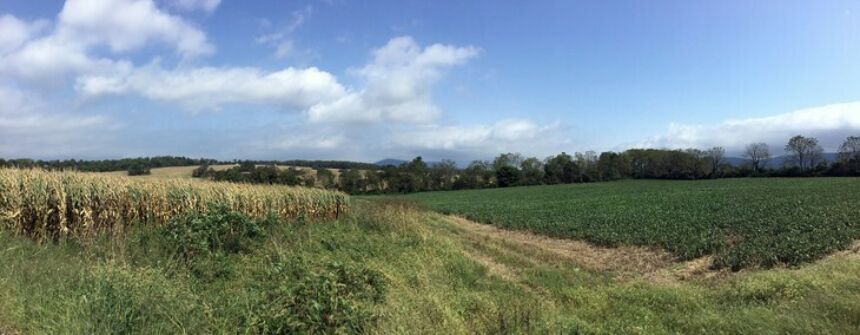December 11, 2018
Penn State partners with ClearWater Conservancy to conserve Musser Gap property

UNIVERSITY PARK, Pa. — Earlier this week, Penn State President Eric Barron announced the University is investigating ways to conserve land it owns roughly between Whitehall Road and Rothrock State Forest at Musser Gap, in Ferguson Township just outside of the University Park campus.
“Our vision for this area is to not only help protect the local water supply, plant and animal species, but also make it a place where people can enjoy nature, learn about the environment and be inspired,” Barron said. (Watch the full statement)
The 365-acre property, which is being referred to as the Musser Gap to Valleylands (MG2V) site, includes the Musser Greenway Trail and is bordered by Rothrock State Forest and the proposed Whitehall Road Regional Park.
As part of the work, the University is partnering with the ClearWater Conservancy, a non-profit organization that aims to conserve and restore the natural resources in central Pennsylvania, which will work with the community and seek input from local residents.
“ClearWater is excited to partner with Penn State and engage our local community around this important initiative. Public input is key to shape future use of the MG2V site — not only for our community today, but for generations to come,” said Deb Nardone, executive director at ClearWater Conservancy. “We will be leading public engagement sessions and surveying stakeholders in the community beginning this January.”
The first such community forum organized by ClearWater Conservancy will take place from 6 to 8 p.m. on Jan. 31 at the Unitarian Universalist Fellowship of Centre County at 780 Waupelani Drive in State College.
David Gray, senior vice president for finance and business at Penn State, said, “As we explore the ecological needs of this unique site that connects town and forest, we are going to take a careful and deliberate approach in our process. We will consult extensively with the local community and government as we consider passive use options that help protect the overall environment, including the water supply, while advancing the University’s core missions of education, research and outreach.”
A student team, comprised of Penn State undergraduate and graduate students, has spent the fall 2018 semester carefully studying the property as part of an upper-level landscape architecture course.
“This project is all about providing both environmental and social benefits — which is what our department consistently strives to do,” said Eliza Pennypacker, professor and head of landscape architecture. “In this first phase of exploration, the students, led and mentored by some of our top faculty, have explored many aspects of the MG2V property, examining the biophysical, geological, hydrological, ecological, agricultural and historic characteristics of the land. This has resulted in a very useful profile of the site’s existing conditions.”
Pennypacker said another class will continue the work in the spring. This group will expand their project understanding by working with ClearWater Conservancy to gain input from stakeholders both within and outside of the University.
Using all of the information gathered this fall, as well as feedback from stakeholders this spring, the students will then generate preliminary ideas for possible future land use of the site that focuses on environmental and social benefits.
“These are some of the very preliminary steps as we begin to consider how to preserve access to the Musser Gap,” Barron said. “I’m looking forward to hearing the results of the student report and continuing the conversation with our community as we explore together the possibilities for conserving the MG2V site.”
Originally published by Penn State News. Image: Daniel Meehan
A story about work that will be done by our landscape architecture students in the spring is forthcoming.
